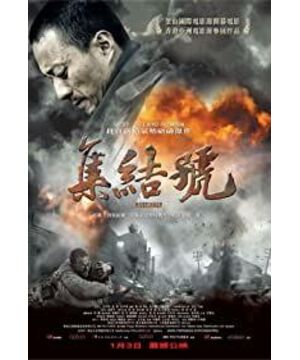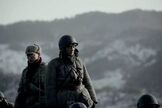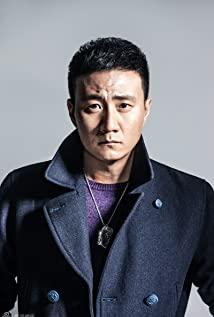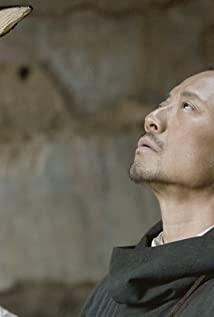It should not be an exaggeration to say that "Assembly" is the best war film in the past ten years of Mandarin films. It not only won all the heavyweight awards of the Golden Rooster and Hundred Flowers in the Mainland, but also won the Best Actor at the Golden Horse Awards and Liu Heng. Best Screenplay. The background of the story is explained at the beginning of the movie. The first character shot is also given to the absolute hero Gu Zidi. Gu Zidi is the company commander of the 9th company. , the instructor was blown in half. In a fit of rage, Gu Zidi ordered the prisoner to be killed and was placed in solitary confinement. The superiors asked Jiulian to stick to the old kiln factory, and Gu Zidi took Wang Jincun with him and became the new instructor of Jiulian. The 47 soldiers of the Nine Company contained a large number of national troops, and in the end, all but Guzidi died. Gu Zidi always felt that it was because he did not hear the rallying call for retreat that led to the sacrifice of the entire company, which became Gu Zidi's nightmare for the rest of his life. After the active duty was over, the original troop number was gone, and Gu Zidi could not prove his identity. He followed the artillery unit in the Battle of Crossing the River, and went to the Korean battlefield again. The second half of the story mainly tells about the grievances of a veteran. For the rest of Guzidi's years, he was looking for troops and the remains of his comrades in arms. In the end, all the nine companies were chased as martyrs.
Where was "Assembly" filmed? First of all, the special effects invited the team of "The Tai Chi Flag Flying", and the quality is guaranteed. The color is low-saturated, because the bloody scenes that are essential for filming long-length wars relieve the physical discomfort of many audiences. The film was released in 2007, but the picture is still as good as it is today. The second is the play of the movie. We all know that the soldiers who shed their blood for the motherland are great, but it is difficult to describe or describe such a hero in general. The way in which "Assembly" is handled is how heroic the nine consecutive fights were in the early part of the movie, and how wronged Guzidi was in the second half of the movie. The grievances highlighted the heroic sacrifice, and the heroic also contrasted with Guzidi's grievances. How can we not solve the problem for such an old hero to find troops, and how can we not give reasonable honor to those who sacrificed. The audience is led by grievances, and can better understand the tragic war. Another advantage in the text is the lines, "Keep the children away from the well in winter, and serve the elderly well." The last words of the soldiers were completely lived. They handed over their lives to the country, and left their families with instructions and warmth. And the lines that are similar to life-like colloquialism are throughout, including the second half of Gu Zidi's scolding at the tomb of Captain Liu, and a veteran who has suffered from guilt and suffering learned that he had never issued an order to let them retreat. I can't really say a word of righteousness in the future. Millet's tough, stubborn, gun-toting character is the same as his ten years of seeking justice for his comrades-in-arms, finding a home for his comrade-in-arms' widow, and creating a plump and three-dimensional character, which has shortcomings and makes people feel distressed.
Going back to the question that has been frequently discussed recently, our film industry should have developed a lot in terms of technology in the past ten years, but why has it still failed to produce works that surpassed the previous ones? There may be many objective factors, but in any case, it is hoped that Chinese films can climb to the top in all aspects.
View more about Ji jie hao reviews











